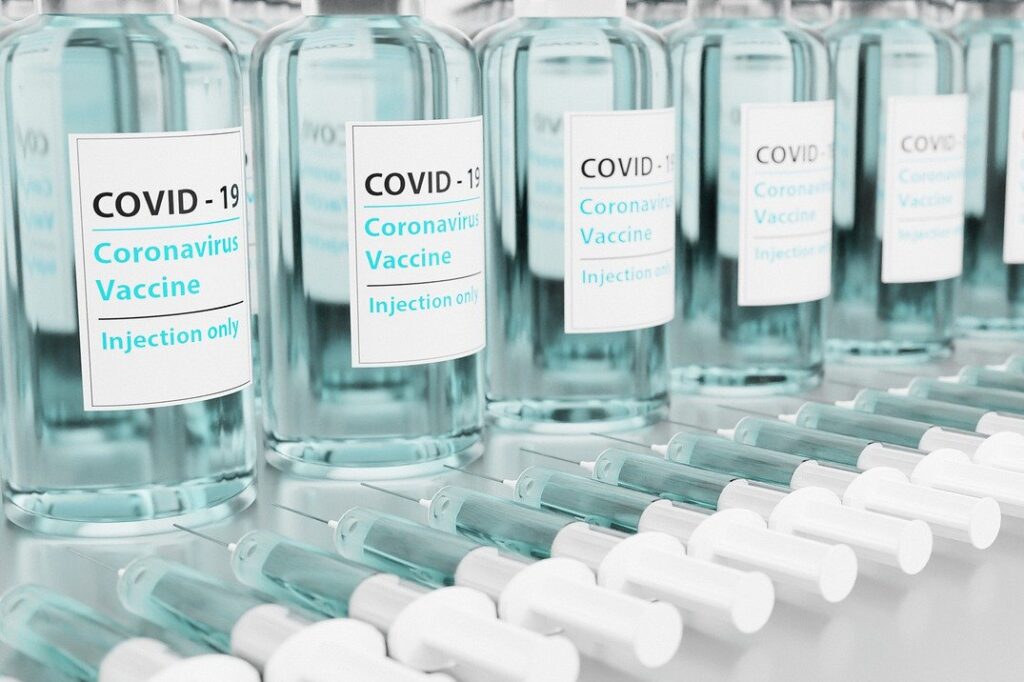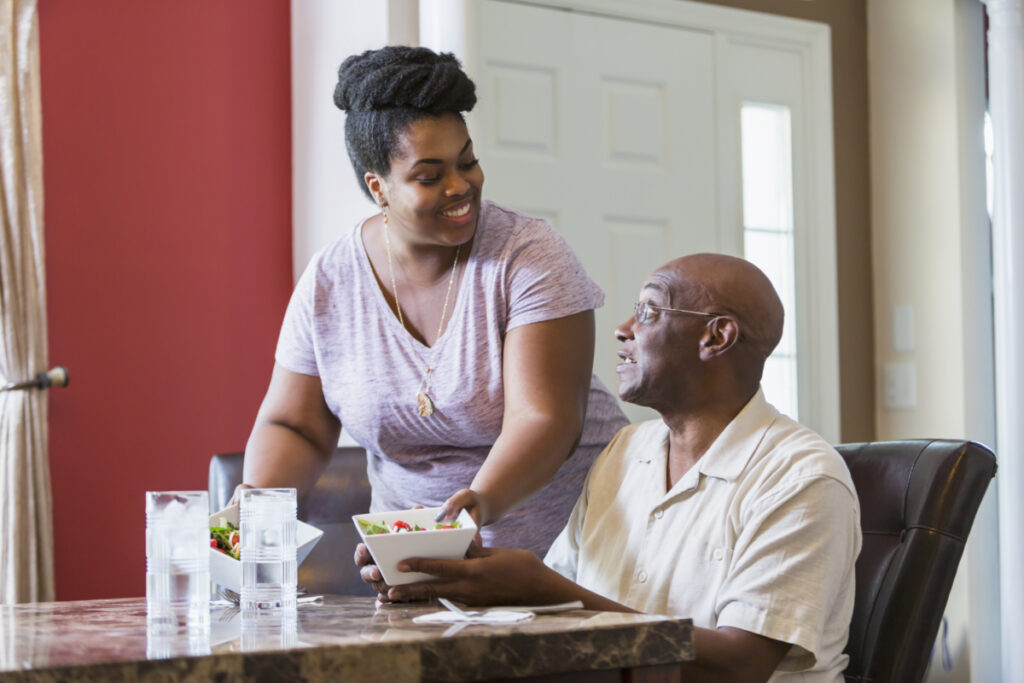Across the nation, states are taking steps to curb the spread of the coronavirus (COVID-19) and meet their residents’ unique needs by restricting social interaction based on the severity of their outbreaks, offering “grab and go” lunches for children whose schools have closed, loosening licensing standards to increase the provider workforce, and offering opioid use disorder treatment and Naloxone through “lock boxes” to reduce in-person clinic visits.
Nearly every state has issued emergency declarations. These highlights from Delaware and Connecticut’s declarations reflect the actions many states are taking:
- Require the state’s National Guard to take precautionary and responsive actions to help the state’s effort to contain the virus, which in some states includes delivering meals to low-income children and enforcing curfews;
- Closing schools, limiting public gatherings to certain sizes, and allowing the state to conduct public meetings electronically;
- Prohibit price gouging, or an excessive price increase of goods or services; and
- Establish visitor restrictions at all nursing and convalescent homes.
Legislators in Alabama even introduced legislation SJR 40 recommending individuals fist-bump rather than shake hands.
States Impose Varying “Shelter in Place” and “Social Convenings” Restrictions
While the federal government’s restrictions on gatherings ranged from a maximum of 50 – from the US Centers for Disease Control and Prevention (CDC) – to President’s Trump recommended 10, states’ restrictions have varied based on the severity of their statewide and regional outbreaks.
California Gov. Gavin Newsom called for “profoundly significant steps,” including the isolation at home of all residents 65 years and older and those with chronic conditions statewide. The CDC simply encouraged older adults to avoid crowds. On Monday, Newsom and local authorities ordered six counties in the San Francisco Bay Area to “shelter in place.”
Other states have imposed curfews and ordered restaurants and bars to close or offer only “to-go” meals.
States Feed Students from Shuttered Schools
The US Department of Agriculture has granted “congregate meal waivers” to all states and Washington, DC to continue to serve students meals if schools are closed and provide more flexibility across its 15 nutrition programs. More than two-thirds of the 31 million US students who regularly eat school lunches depend on a free or reduced-price school lunch as a main source of their daily nutrition, according to the School Nutrition Association.
Many states are working to develop creative approaches to feed students in a way that enables students to practice social distancing. Tacoma, in Washington State, offers drive-through-style lunch, along with the next day’s breakfast, over the course of two hours each day. North of Seattle, another district is employing its now out-of-use school buses and their drivers to deliver the meals to pick-up sites or bus stops, and in some cases to homes.
New Mexico is keeping all of its school cafeterias open and officials are working to organize “grab and go” food options. The state is also working with its National Guard and others to help distribute meals to students who can’t come in. It is also keeping its school-based childcare centers open.
More States Implement Drive-Through Testing Innovations
Across the nation, drive-through testing sites are underway in a patchwork approach. Some, such as Kaiser Permanente in Redwood City, CA, are only testing their insurance plan enrollees.
New York plans to open a drive-through facility in Long Island this week after the success of its New Rochelle mobile testing center, which served 150 cars and tested 263 people in its first day. Once fully operational, the facilities will test up to 500 people per day. Drive-through mobile testing facilities help keep people who are sick or at risk of having contracted coronavirus out of health care facilities where they could infect other people.
States are hoping the federal government will pick up the tab for establishing these mobile testing centers. Florida Sen. Rick Scott, who is under self-quarantine after potential exposure, wants the US Department of Health and Human Services to reimburse states for mobile testing sites. He introduced the Coronavirus Mobile Collection Site Act last week in the US Senate and hopes to make it part of the House’s recent legislation that is now coming to the Senate.
Keeping the Public Informed
Many states’ governors are holding daily press briefings and creating webpages with toll-free information numbers designed to keep the public informed about the number and location of infections in their state and to share strategies and information to help limit its spread. Examples of webpages dedicated to information and prevention include Nebraska, New Mexico, and South Carolina.
Nearly every state has also convened coronavirus response teams charged with coordinating the state’s response across departments, local agencies, and health authorities to limit the spread of the virus.
Expand States’ Health Care Workforces
With health care workers in short supply – especially as providers themselves become infected with the coronavirus – states are looking into loosening regulation and licensing requirements to expand their workforces. On March 13, 2020, the Centers for Medicare and Medicaid Services (CMS) issued new guidelines temporarily waiving requirements that out-of-state providers be licensed in the state where they are providing services through Medicaid when they are licensed in another state (see additional information below). Massachusetts has recently moved to allow medical professionals from other states to obtain a Massachusetts license in 24 hours.
Ensure Continued Opioid Use Disorder (OUD) Treatment and Naloxone Access
Using guidelines developed for emergencies such as hurricanes, the Substance Abuse and Mental Health Services Administration (SAMHSA) is encouraging states to ensure delivery of medication-assisted treatment (MAT) to individuals with OUD who may be quarantined and unable to attend their state-run opioid treatment program. Each State Opioid Treatment Authority is responsible for implementing a disaster plan to address COVID–19. For additional guidance on developing and implementing disaster plans, read SAMHSA’s TAP 34: Disaster Planning Handbook for Behavioral Health Treatment Programs.
Meanwhile, the Indiana Division of Mental Health and Addiction is collaborating with the nonprofit Overdose Lifeline to create lock boxes that provide both the anti-overdose medication Naloxone and MAT during the COVID-19 outbreak. The lock boxes are designed to help reduce the number of visits to treatment programs to avoid further spread of the virus.
Health Insurance Marketplaces
In response to health emergencies in their states, Maryland, Massachusetts, New York, Rhode Island, Connecticut, Nevada, and Washington State’s health insurance marketplaces have opened a temporary and limited special enrollment period during which uninsured individuals can enroll in coverage. Other state marketplaces have existing special enrollment periods available to the uninsured, including California and Washington, DC. In other states, individuals may currently qualify for a special enrollment period triggered by circumstances, such as a change income or employment status.
Several marketplaces (California, Washington, DC, Maryland, Minnesota, and Nevada) have also developed new resources to help consumers navigate their coverage during this time, including resources that detail how COIVD-19 services may be covered under their current insurance plans and links to where consumers can go for more information about their coverage and care.
SNAP Flexibility for Quality Control Interviews
In response to requests from states, USDA is allowing states to conduct telephone interviews instead of face-to face-interviews for Supplemental Nutrition Assistance Program (SNAP) Quality Control (QC) purposes. States must notify USDA’s Food and Nutrition Services in advance if they choose to implement this flexibility and must follow all other requirements for the QC interview as specified in SNAP regulations. This flexibility applies to any QC case reviews conducted in March, April, and May 2020. All states have the ability to request this waiver.
Resources for State Medicaid and Children’s Health Insurance Programs (CHIP)
CMS has created a toolkit on legal authorities and flexibilities available to state Medicaid and CHIP agencies to respond to disasters and emergencies with information on flexibilities related to eligibility and enrollment, benefits, cost-sharing and financing, expanding provider workforces. It includes information on state plan amendments, 1115 demonstrations, 1135 waivers, and Appendix K of 1915(c) waiver applications. As a companion to this toolkit, CMS has created a COVID-19-specific FAQ for state Medicaid and CHIP agencies. The FAQ includes options for telehealth, and flexibility on eligibility, cost sharing, and financing issues. CMS said waiver reviews will be expedited. On March 13, 2020, CMS approved Florida’s first-in-nation coronavirus-related 1135 waiver application, which enables the state to:
- Waive prior authorization requirements to remove barriers to needed services;
- Streamline provider enrollment processes to ensure access to care for beneficiaries;
- Allow care to be provided in alternative settings in the event a facility is evacuated to an unlicensed facility;
- Suspend certain nursing home screening requirements to provide necessary administrative relief; and
- Extend deadlines for appeals and state fair hearing requests.
In general, Section 1135 waivers are designed to ensure, “Sufficient health care items and services are available to meet the needs of Medicare, Medicaid, and CHIP beneficiaries,” according to CMS guidance. The following are examples of flexibilities that states and territories may seek through a 1135 waiver request:
• Waive prior authorization requirements in fee -for-service programs;
• Permit providers located out of state/territory to provide care to another state’ s Medicaid enrollees impacted by the emergency;
• Temporarily suspend certain provider enrollment and revalidation requirements to increase access to care;
• Temporarily waive requirements that physicians and other health care professionals be licensed in the state in which they are providing services, so long as they have an equivalent licensing in another state; and
• Temporarily suspend requirements for certain pre-admission and annual screenings for nursing home residents



